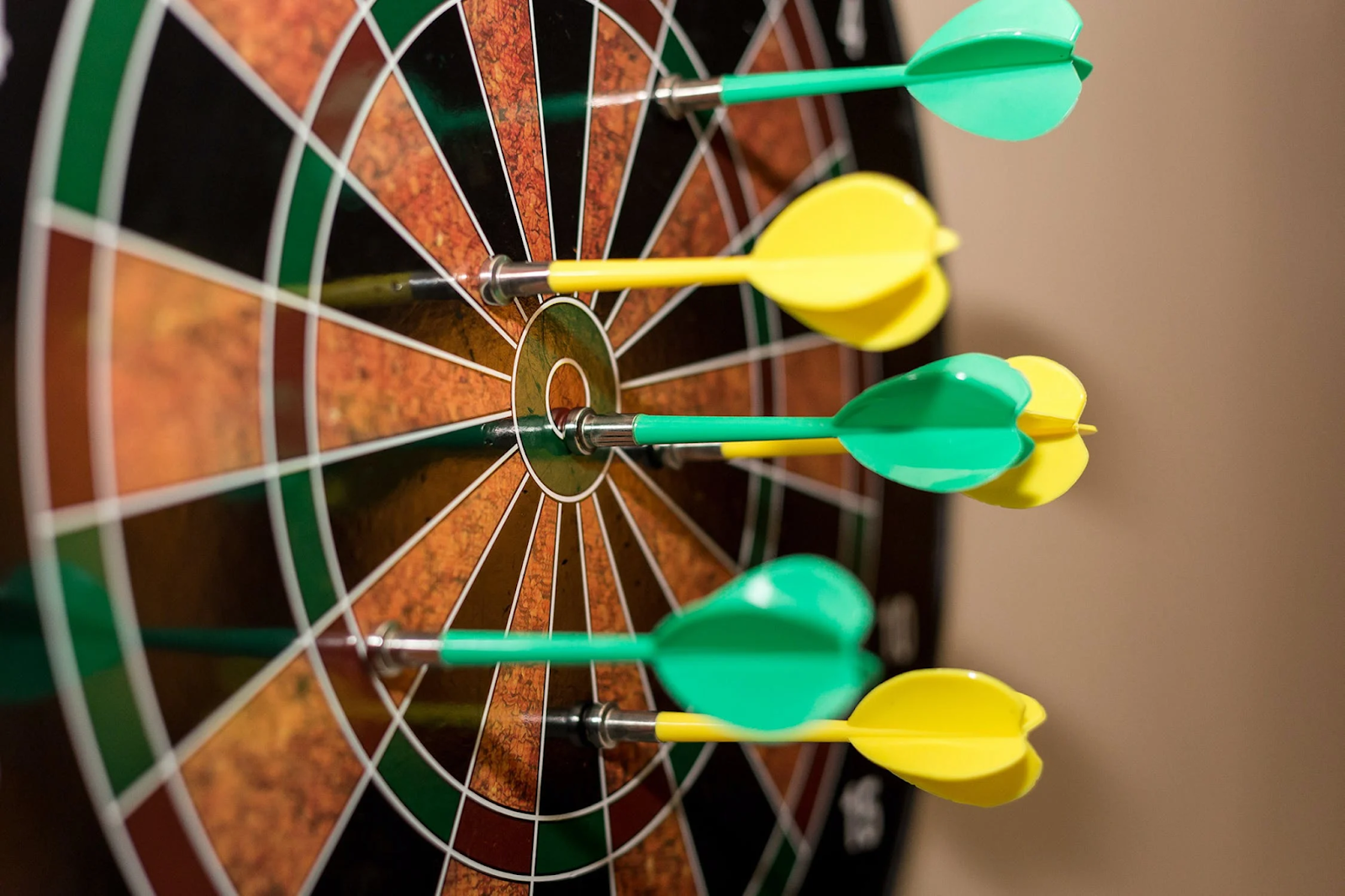March 07, 2024 - Coaching Business
The Complete Guide to Goal Setting in Coaching
Learn how goal setting in coaching works. With models like SMART & EXACT, learn how you can excel and reach for the stars! Read more here!

The Complete Guide to Goal-Setting in Coaching
Goal-setting is pivotal in the pursuit of personal and professional excellence. From identifying core beliefs to planning the steps of your journey towards a goal, it's a process that embeds itself deeply in the journey towards self-improvement and achievement.
Whether it's about carving a niche in one's career, enhancing personal skills, or balancing the myriad aspects of life, effective goal-setting stands as a cornerstone that guides individuals through the intricacies of their aspirations.
But what are the appropriate steps you can take as a coach to set the right goals and achieve them? And how can coaches guide people to achieve their highest potential?
In this article, we delve into the essence of goal-setting within the coaching context, exploring its multifaceted nature and the profound impact it has on a coach’s path to success. Let’s take a look, shall we?
The Benefits of Goal-Setting on Personal Growth
Effective goal setting in coaching offers profound long-term benefits for personal growth. It involves more than just achieving specific objectives; it fosters essential life skills such as resilience, self-awareness, and strategic thinking.
The role of a coach is pivotal in this process, providing guidance and support that goes beyond the mere setting of goals. They help individuals navigate the complexities of goal-setting, ensuring that the goals set are not only achievable but also lead to meaningful and sustainable personal and professional development.
What is the Goal-Setting Process like?
1) Setting and Clarifying Coaching Goals

Identifying and articulating clear, achievable goals is a foundational step in the goal-setting process. It involves a deep dive into what your clients truly want to achieve and why. As a coach, you can help your clients in this process, guiding them to align their goals with their values and vision.
This alignment ensures that the goals are not only attainable but also resonate with their personal and professional aspirations, making the journey towards them more meaningful and motivating.
2) Strategies for Achieving Set Goals
Once goals have been set, developing a concrete action plan and establishing milestones is the next critical step. This plan acts as a roadmap, breaking down the larger goal into smaller, manageable tasks.
Techniques like setting short-term targets and regular reviews keep one focused and on track. A coach can be invaluable here, providing accountability and support, ensuring that clients stay motivated and overcome any tendency to procrastinate or lose focus.
3) Overcoming Challenges in Goal-Setting
Goal-setting is not without its challenges. Common obstacles like fear of failure, lack of resources, or external pressures can hinder progress. Here, the role of a coach is pivotal in helping clients to identify barriers and develop strategies to overcome them.
This can be through reframing mindsets, offering alternative approaches, or simply providing a supportive ear. Your expertise not only helps in keeping the goals realistic and achievable but also ensures that your clients stay resilient and adaptable throughout the goal-setting journey.
4) Measuring and Evaluating Progress

This stage is necessary to provide a clear view of the progress made, and to also highlight areas needing adjustment. Flexibility and adaptability are key; learning to pivot strategies in response to changing circumstances ensures that goals remain relevant and achievable. For example, one may modify targets or timelines as needed.
Examples of Key Models and Techniques for Goal-Setting in Coaching
1) SMART Goal Model
The Specific, Measurable, Achievable, Relevant, and Time-bound (SMART) model helps create clear and concise goals, making them more tangible and achievable.
As a coach, you can help your clients apply this model effectively, ensuring that each goal is not only well-defined but also aligns with their broader life objectives. The precision and clarity that the SMART model brings will be instrumental in helping clients track progress and stay motivated.
Here is an example of this framework in action:
-
Specific: I want to become a team leader in my department.
Manage Your Coaching Practice in One Place
CoachVantage automates your business workflows so you can focus on impactful coaching results.
Start Free TrialNo Credit Card Needed -
Measurable: Achieve this by securing a promotion within the next year.
-
Achievable: I will undertake leadership training and actively seek out leadership roles in current projects.
-
Relevant: This aligns with my long-term career goal of moving into management.
-
Time-bound: I aim to achieve this promotion by the end of the next fiscal year.
2) EXACT Goal Model
The ‘Explicit, Xciting, Assessable, Challenging, and Time-framed’ (EXACT) model encourages people to set goals that are not only measurable but also exciting and personally meaningful.
A coach's help in applying the EXACT model can be transformative, pushing clients to set goals that challenge their limits while being aligned with their passions and values. It's about setting goals that not only lead to success but also to personal fulfilment.
Here is an example of how you can use the EXACT model when setting goals:
-
Explicit: I want to run a half marathon.
-
Xciting: This goal excites me as it will be a testament to my fitness and dedication.
-
Assessable: I will track my progress by gradually increasing my running distance and monitoring my timings.
-
Challenging: I have never run this distance before, so it will push me out of my comfort zone.
-
Time-framed: I aim to participate in the local half marathon event scheduled for six months from now.
3) Techniques like Visioning Exercises and Brainstorming Goals
Beyond models, techniques like visioning exercises and brainstorming goals have been pivotal. Visioning exercises, guided by a coach, help in painting a vivid picture of what one truly desires, aligning goals with vision.
Brainstorming, on the other hand, opens up a world of possibilities, allowing one to explore various pathways and choose goals that resonate deeply. These techniques not only broaden one’s perspective but also ensure that the goals set are a true reflection of who one is and what one aspires to achieve.
Embracing the Future: The Lasting Impact of Goal-Setting
As we conclude this comprehensive guide, it's clear that effective goal setting in coaching is a powerful tool for personal and professional growth.
The journey of setting and achieving goals is enriched with learning, adaptability, and resilience, fostering a mindset geared towards continuous improvement.
The role of a coach in this process is invaluable, offering guidance, support, and accountability. Embracing the principles and strategies can lead to a future where goals are not just met but exceeded, paving the way for a fulfilling and successful life journey.
CoachVantage is a coaching platform that enables coaches as well as coachees to set goals and milestones and keep track of progress. The platform also has an ‘automation’ feature so you can automate sending goals as part of the coaching journey. It’s an invaluable tool that helps your clients keep sight of how they are tracking with their goal completion, while giving you clear visibility on their progress.
If you’re keen on finding out how CoachVantage can support your coaching business, sign up for a 14-day free trial today!

Glen Oliveiro
Founder of CoachVantage
With a pulse on the coaching industry, Glen personally engaged with hundreds of coaches to develop a platform that addresses their day-to-day challenges. A visionary entrepreneur, Glen is committed to revolutionizing coaching practices through the innovative solutions offered by CoachVantage.
https://www.coachvantage.comYou might also like...
.png)
Top Social Media Marketing Tips for Coaches that Work in 2025
.png)
Top 7 Health and Wellness Coaches That Can Aid You On Your Fitness Journey
